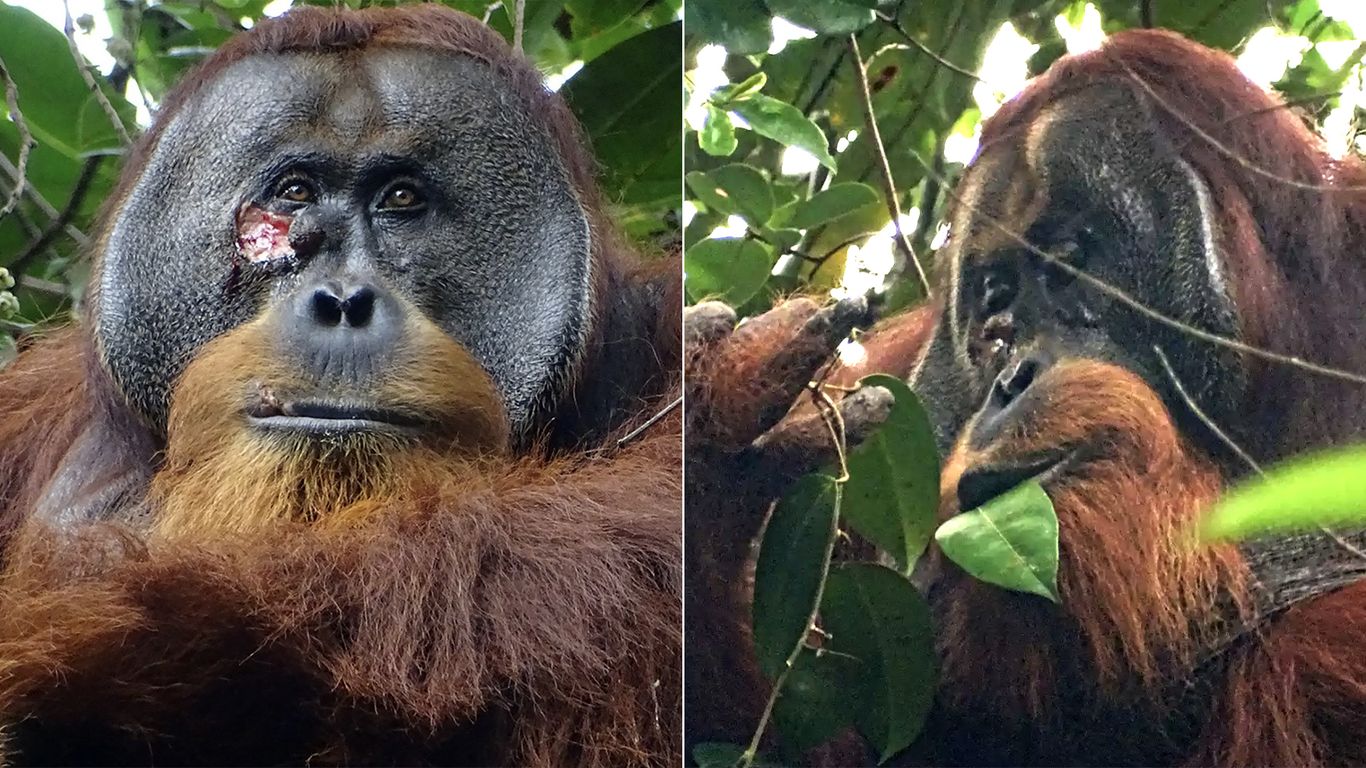
In a groundbreaking discovery, a wild Sumatran orangutan named Rakus was observed using the medicinal plant Akar kuning (Fibraurea tinctoria) to treat a wound on his face in June 2022. This marks the first documented case of a wild animal self-medicating with a plant for wound healing.
Rakus, who lives in Gunung Leuser National Park in Indonesia, was seen chewing the plant and producing juice which he then applied to his wound and covered with the chewed-up plant material. The process took over 30 minutes, but within five days, the wound closed and healed within a month.
Akar kuning is a medicinal plant commonly used in Sumatra for its anti-inflammatory, antibacterial properties. It has been used by humans to treat various conditions such as malaria, diabetes and dysentery.
The researchers from Max Planck Institute of Animal Behavior and Universitas Nasional, Jakarta were surprised by this observation as it is rare for orangutans to eat the plant or use it for medicinal purposes. They noted that Rakus' behavior could point to the origins of wound care in humans.
Rakus was also seen resting more than usual during this period which could have helped with wound healing. The team suggests that our last common ancestor may have shown similar forms of ointment behavior.
This observation adds to the growing body of evidence that animals, including primates, use plants for medicinal purposes. However, it is important to note that this is a single observation and further research is needed to confirm these findings.
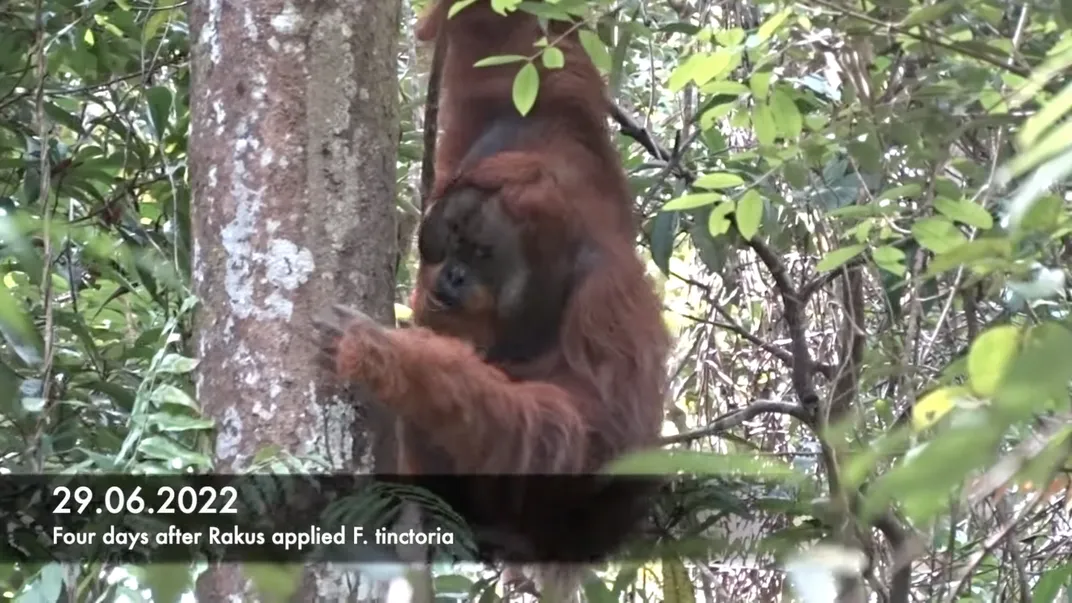
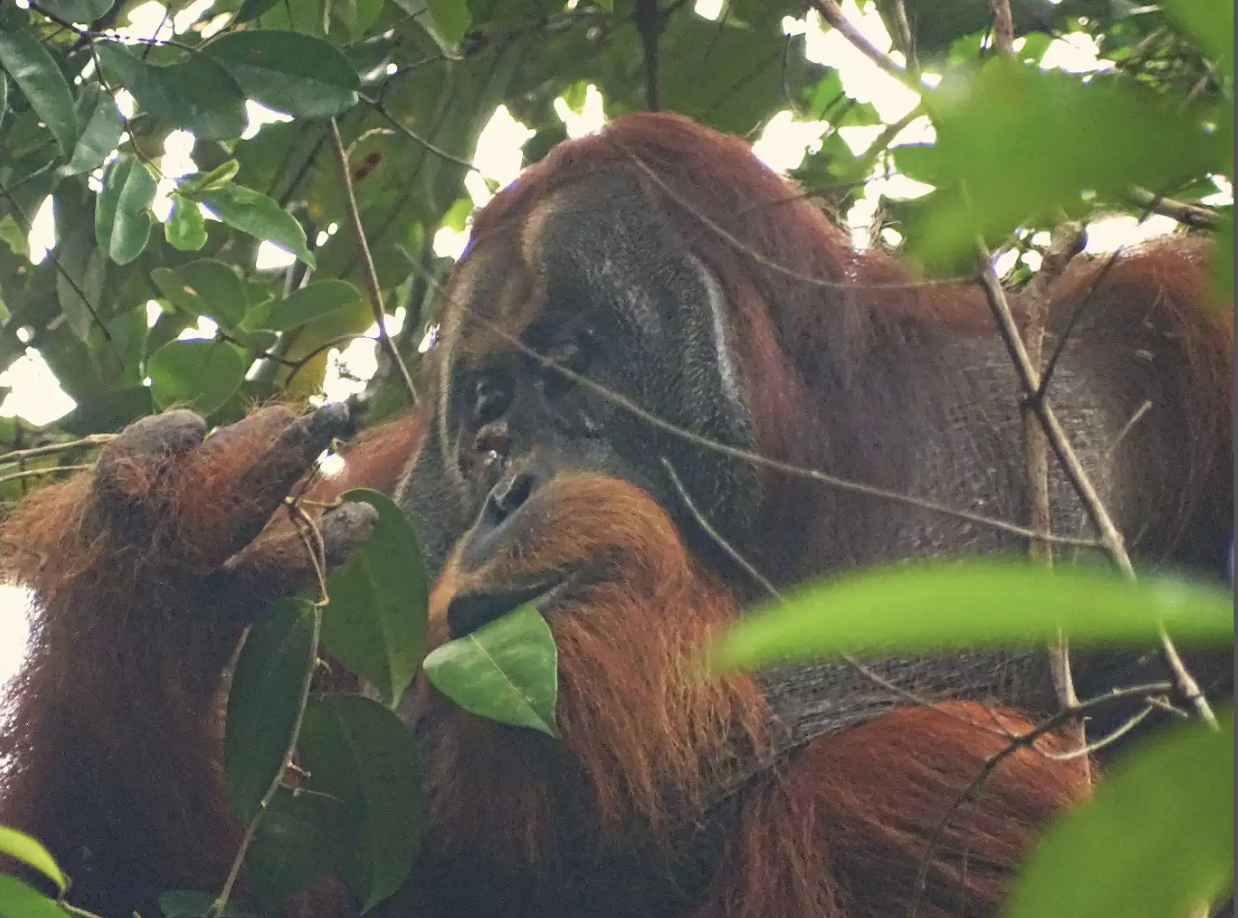
/https://tf-cmsv2-smithsonianmag-media.s3.amazonaws.com/filer_public/3c/ea/3cea8a10-ef5c-4e1a-9f44-4ae8d9f98516/raku1.webp)
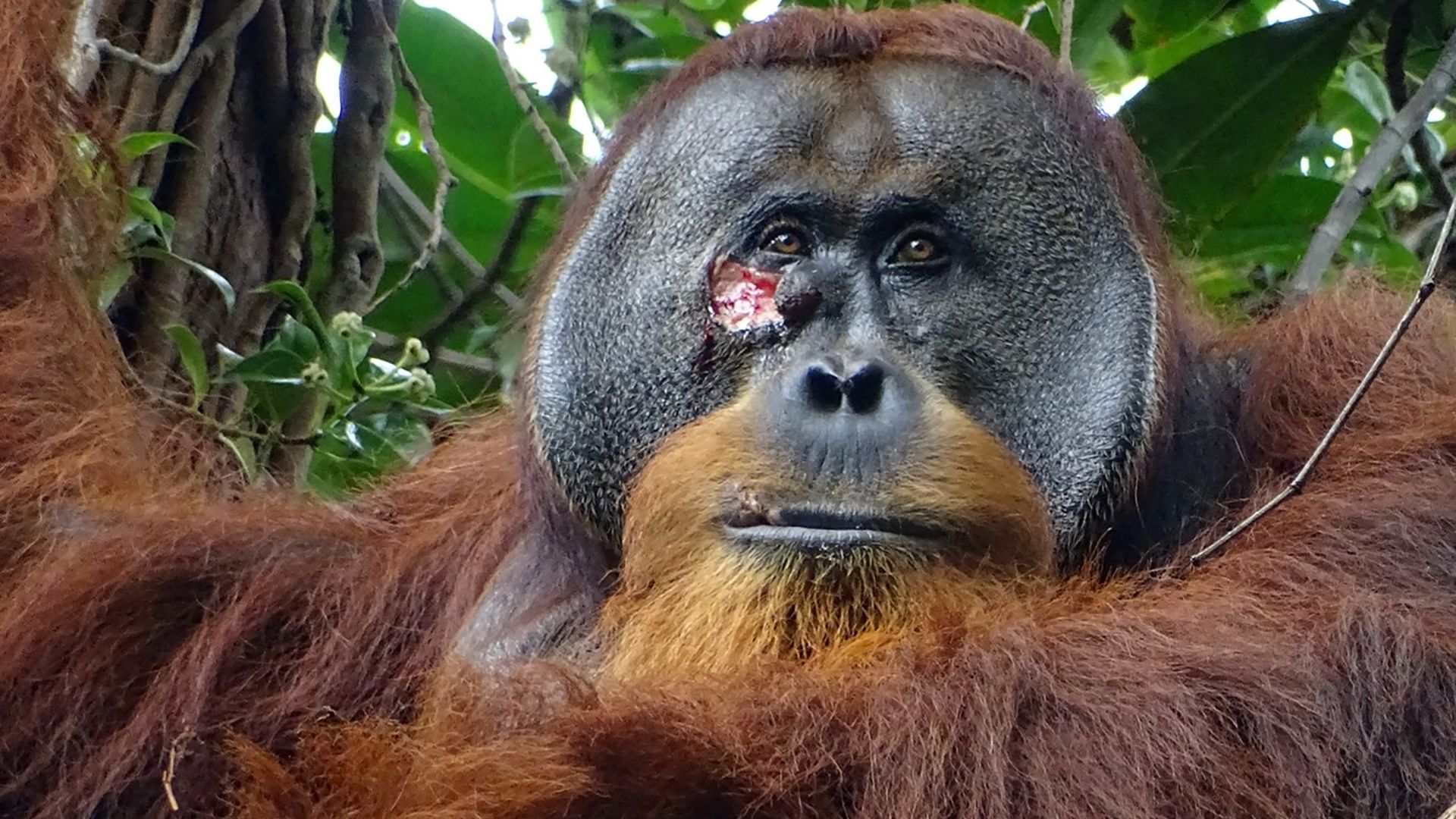
:focal(848x638:849x639)/https://tf-cmsv2-smithsonianmag-media.s3.amazonaws.com/filer_public/53/a2/53a2aa42-666b-4429-91a0-799c82a3e382/raku3.webp)

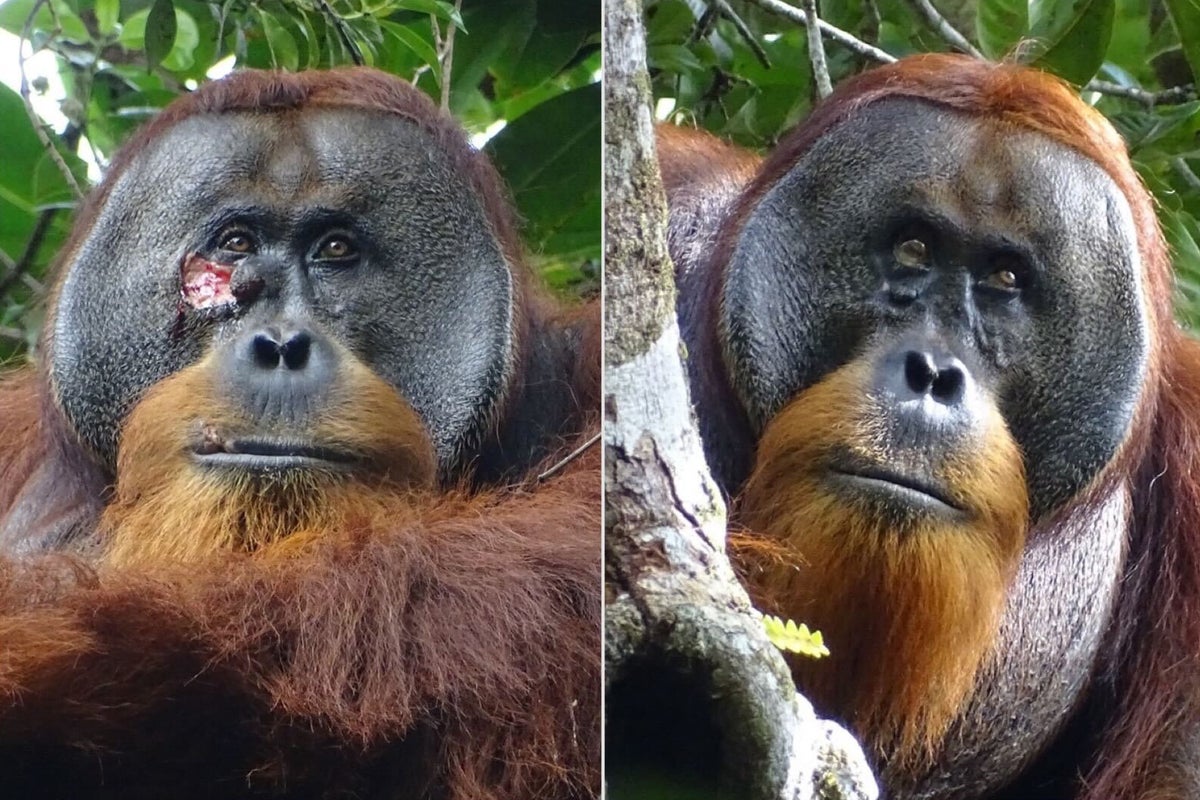
/https%3A%2F%2Ftf-cmsv2-smithsonianmag-media.s3.amazonaws.com%2Ffiler_public%2F53%2Fa2%2F53a2aa42-666b-4429-91a0-799c82a3e382%2Fraku3.webp)